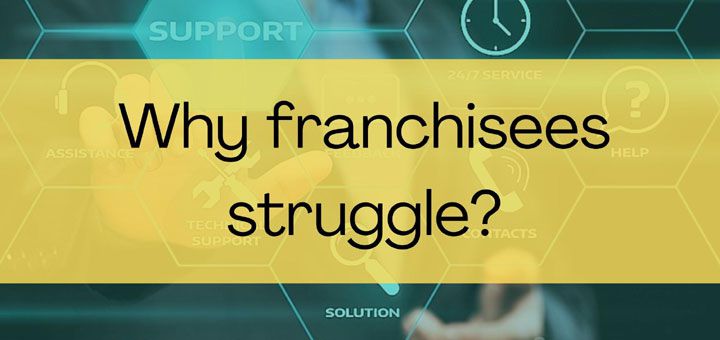
A common grouch among franchisors is the difficulty in getting franchisees to embrace change.
Change in a franchise network can be big (similar as a complete rebranding or the preface of a new IT system) or small (similar as minor change to a common procedure to increase time effectiveness or client satisfaction).
Of course, change is necessary for the survival for any business, and a franchise is no different.
Yet introducing change into a network is one of the most delicate challenges for franchisors, and frequently results in networks with unexpectedly high situations of functional diversity among franchisees’ businesses where complete uniformity might else be anticipated.
Unexpectedly, some franchise networks are indeed pokily at enforcing change than non-franchised chains of analogous or indeed lesser size.
There are few reasons to consider.
1. The change itself
The nature of the change sought by the franchisor might itself be the reason why franchisees are reticent to embrace it.
Still, or too different from the way that effects are formerly done, the collaborative capacity of the network to bridge the gap between the “old” versus the “new” just might not be enough to get there, If the change is perceived as too radical.
Still, also franchisees will fail to see the link or the real need for the proposed change, If the vision for the change is pitched too far above the current reality of the network.
In other words, if franchisees can’t understand the vision and accept the explanation for the change, also it’s doubtful they ’ll want to apply it.
2. Indolence
A simple reason for franchisees failing to embrace change is frequently the resounding lack of amenability to do so.
Change is seen as a voluntary vexation, rather than necessary for long- term survival.
There’s one word guaranteed to clear any room in seconds and overcome indolence “Fire!” Occasionally people need to smell the bank or see the fire before they respond, and by also it can be too late.
Franchisees repel change because they’re comfortable where they ’re at and refuse to believe there’s a fire until the dears are virtually gulfing them.
Another reason for indolence stems from the franchisee’s accession of the ballot in the first place. Veritably many franchisees have ever possessed a ballot ahead. Their nearest frames of reference to buying a ballot are other big- ticket accessions, similar as buying an auto or buying a house.
Generally, when buying an auto or a house, the buyer can make whatever advancements or emendations they want with their new accession in whatever timeframe it pleases them to do so.
Only in rare circumstances are auto or home possessors told by an external party (similar as an inspector of roadworthiness or an original government authority) that they must make changes to their prized possession, so from their point of view, why should franchisees apply changes to their businesses any quicker than it suits them?
Another reason for franchisee indolence related to their purchase of the ballot is the internal shot the franchisee takes of the business at the moment of joining the network. To the franchisee, the business freezes in time as at their inception date, and changes assessed on them latterly are ever seen as eroding that internal snap.
This sentiment is stylish expressed in the exasperation of franchisees who oppose change on the base that “This isn’t what I inked up for”.
3. Cost versus benefits
Indeed, those franchisees who understand the need for change may still baulk at actually enforcing it because the costs are perceived to overweigh the benefits.
Unfortunately, this feeling is each too common among franchisees faced with big- ticket costs attached to changes requested or demanded by the franchisor, particularly those to do with rebranding or store refurbishments which will bring franchisees knockouts or indeed hundreds of thousands of bones, with no guarantee that the business will perform any better once the changes are enforced.
Some franchisors overcome franchisee fears about the costs of change by incompletely or completely funding the change themselves. Not unexpectedly, this overcomes important of the resistance to change because it reduces or eliminates threat to the franchisee, enhances the value proposition of the change among franchisees, and accelerates deployment of the change across the network.
4. Employee issues
In utmost cases it’s about remitment of stipend or the mysterious absence of other fiscal benefits. But that’s just what makes the news. There’s no mistrustfulness a lot further that might not be as trustworthy but can be just as mischievous to the weal of workers.
These include issues associated with provocation, job satisfaction, training, performance, cooperation, supervision and career progression. Or warrant thereof.
The question that arises is this what’s it about ballot businesses in particular that makes them especially vulnerable to poor hand operation practices?
Skillset is one factor that pestilences numerous possessors irrespective of whether they ’ve bought a franchise. The chops they retain in making their business successful – marketable wit, salesmanship and equity raising to name a many – are frequently not the directorial chops needed to engage their platoon. Hence why advancement (or worse) so constantly ensues.
The other consideration is the size of the establishment. Not the size of the franchisor which can be massive and transnational but the size of the franchisee which can be bitsy and original with limited finances to invest in the coffers that cultivate happy and pious workers and not the contrary.
5. Functional issues
Another hedge to the preface of change is the perceived dislocation to the franchisee’s business caused by enforcing the change. The dislocation may be perceived as so severe, that the short- term pain to the franchisee and their business outweighs any long- term benefits.
There may also be limited windows of occasion in which a franchisee can apply the change, similar as for businesses with largely seasonal demand.
Still, for reasons beyond the franchisee’s control (similar as the vacuity of merchandisers, etc.), If.
6. Culture
Eventually, the culture of the association may be one in which change is viewed with fear and dubitation due to once changes that have failed to deliver their promised benefits.
Likewise, franchisees who freezeframe their businesses at the point of joining the network (see Inertia over) are hardly fitted to change because the content of change infrequently arises during the reclamation process when it arguably needs to be bandied the most.
The reclamation phase is when the prospects of franchisees are most impressionable. However, anyhow of the business model or ballot brand, also it’s more likely that as franchisees in future these campaigners will more understand and acclimatize to the needed change, If it’s communicated easily and constantly to ballot campaigners during the reclamation phase that survival and success in business relies on the capacity to change.
Franchise networks that have a culture of embracing change, and which demonstrate progress and change is an evolutionary demand for profitable businesses to survive, will be more likely to have franchisees who accept change than networks for whom change and invention is ad hoc and intermittent.
Conclusion
When franchisors can foster change-friendly societies, overcome functional and cost issues in relation to change, give benefits from change that are palpable to franchisees to overcome franchisee indolence, and can successfully demonstrate the path from “old” to “new”, also enforcing change programs will come much easier for franchisors, and ameliorate their competitive advantage against company- possessed chains.






